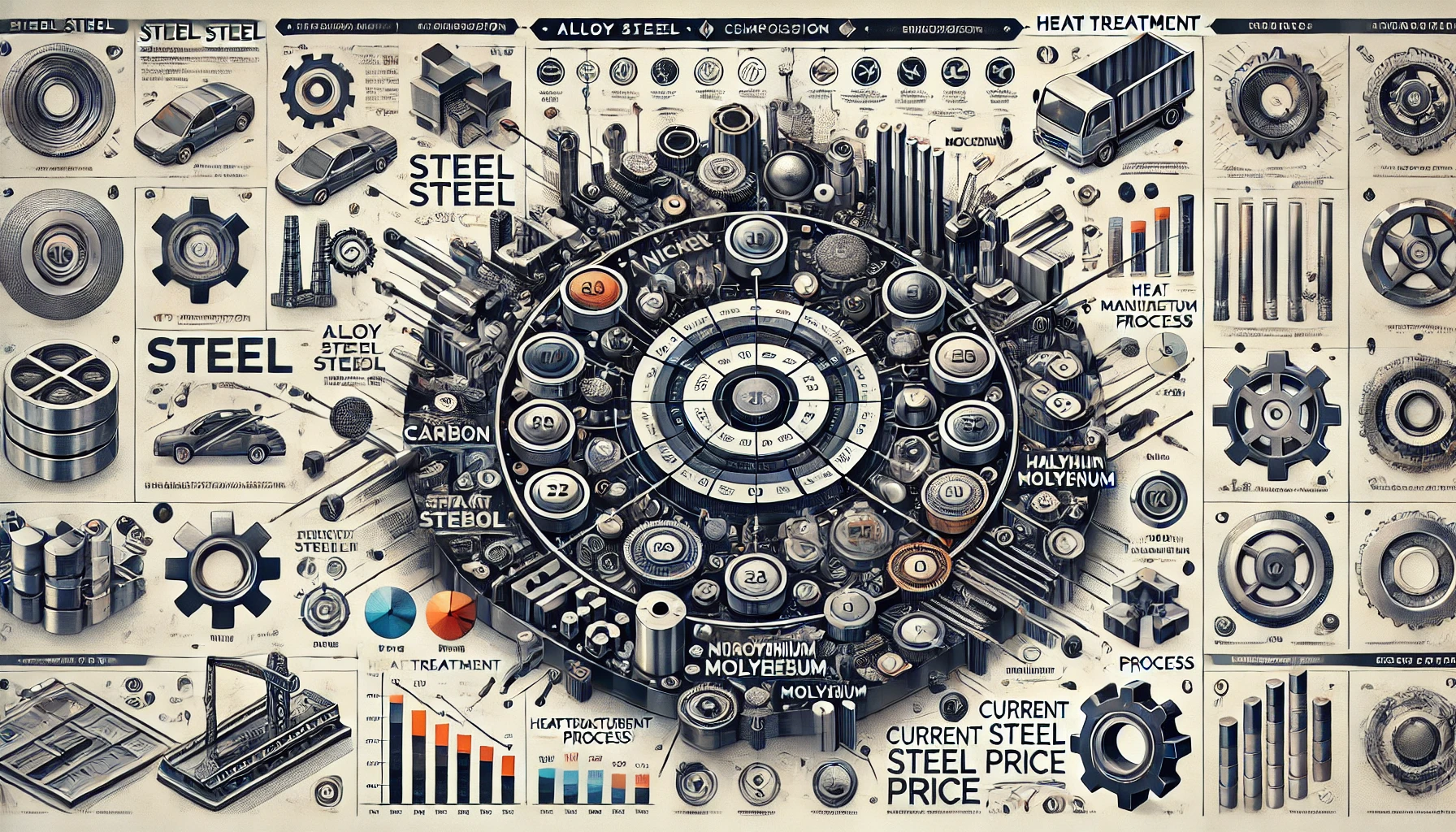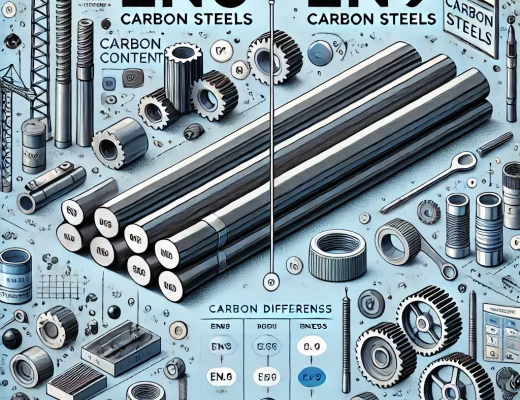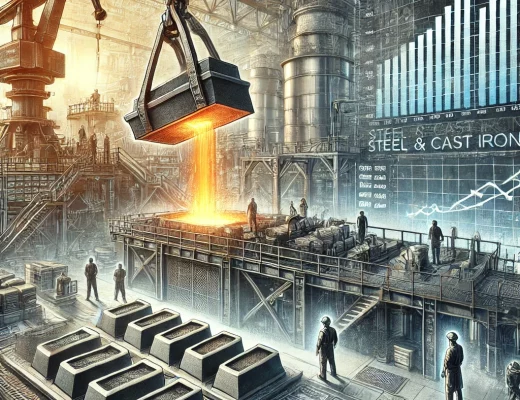The alloys have been the key to creating stronger and more durable materials. In today’s world, selecting the right alloy material is very important in industries like automotive and construction. With factors like alloy steel price impacting decisions, understanding how different alloy components affect the mechanical properties of steel provides clarity on how these choices influence sectors such as industry, construction, and energy.
Know About Steel Alloys:
The steel alloy, composed mainly of iron and carbon, is strengthened during production by adding elements like nickel, chromium, or molybdenum. These components modify the mechanical and chemical properties of steel, allowing it to be adapted for specific applications. Understanding these factors is essential, especially as the steel price forecast influences decisions in industries relying on customized steel solutions.
Alloying elements and their effect on steel properties:
The main five elements—carbon, silicon, manganese, sulfur, and phosphorus—compose carbon alloys. In addition to these, compounds like nickel, tungsten, molybdenum, copper, titanium, and vanadium are used in alloy steels. These additional elements, known as alloying elements, enhance steel properties for specific applications. With steel commodity price India fluctuating, understanding these components is crucial for cost-effective, high-performance steel selection.
Impact of nickel and chromium alloying elements on the energy industry:
Nickel and chromium are the most commonly used elements in the alloy steel. The nickel plays a key role in heat treatments by preventing grain growth, which is helpful to increase the toughness of the steel and also reduce the critical point, which allows treatments to be carried out at slightly lower temperatures. Chromium is one of the most commonly used alloying elements in alloy steels and is widely used in construction steels: stainless steel, tools, and heat-resistant steel.
Factors Affecting Strength, Durability, and Hardness of the Steel:
The steel properties like strength, hardness, and durability are affected not only by the alloying elements but also by the manufacturing process. With current steel prices in India influencing market dynamics, key factors that also impact steel include:
1. Composition of Alloy
2. Heat treatment
3. Manufacturing Process
Alloy Industrial Applications:
Due to their versatility, alloys are widely used in various industrial applications, like construction, manufacturing, and automotive industries. The properties of alloy types allow their use in demanding environments where toughness, strength, and durability are essential.
Wrap Up:
Steel alloys have an undeniable impact on enhancing strength, toughness, and durability. The proper selection of alloy types not only ensures optimum performance but also improves efficiency and extends service life in a wide range of industrial applications, from construction to machinery, and the current approach is too focused on creating more sustainable steel while reducing environmental impact and encouraging rec



